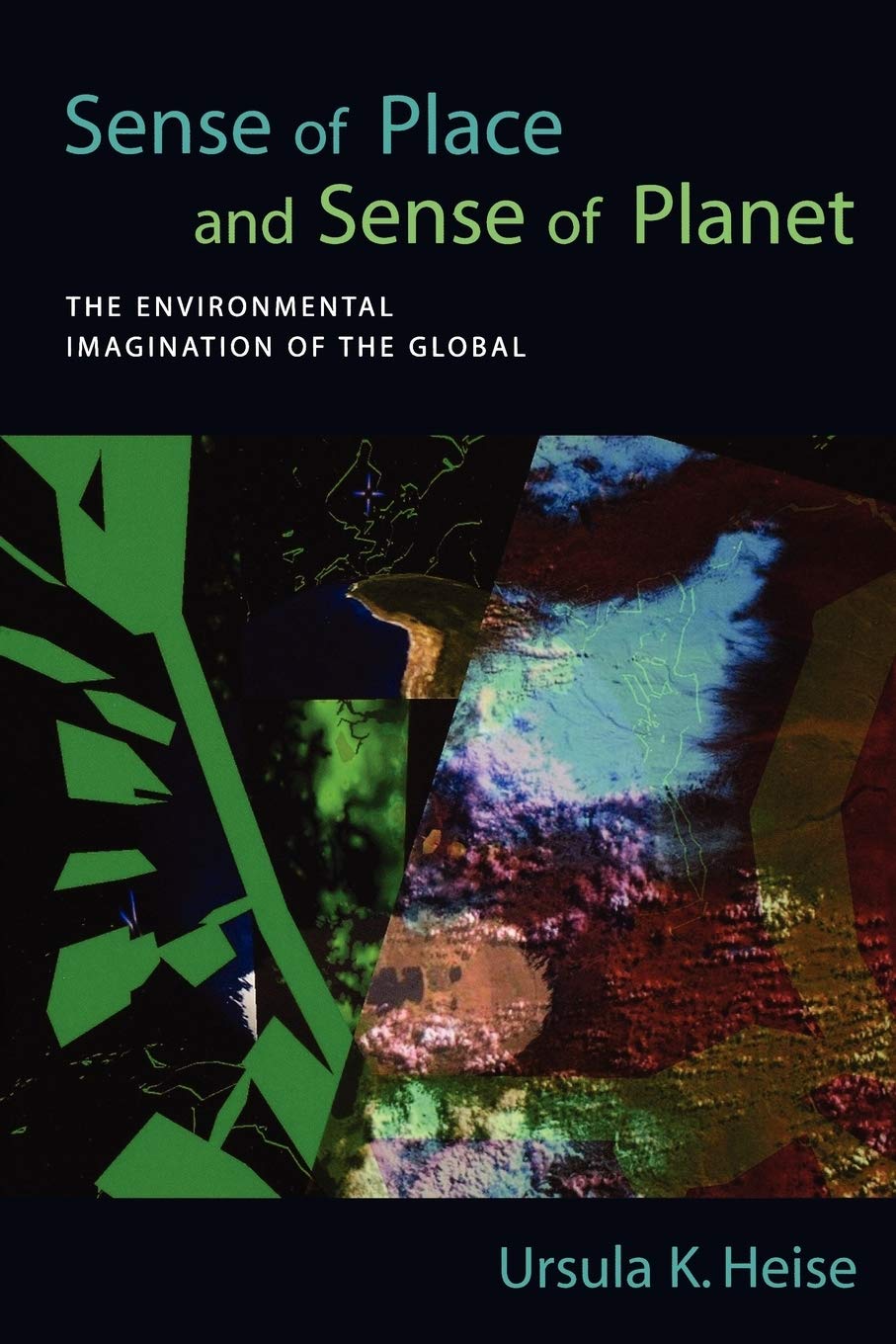About this deal
In her meaty introduction which provides a broad overview of the conflicting opinions and thoughts on the subject of localism as place as an environmentalist strategy, Heise writes, “With this wave of countercritiques, the theoretical debate has arrived at a conceptual impasse: while some theorists criticize nationally based forms of identity and hold out cosmopolitan identifications as a plausible and politically preferable alternative, other scholars emphasize the importance of holding on to national and local modes of belonging as a way of resisting the imperialism of some forms of globalization” (12). Heise then presents one of the central ideas of this text, “eco-cosmopolitanism” which she defines as an “environmental world citizenship,” arguing that “ecologically oriented thinking has yet to come to terms with one of the central insights of current theorists of globalization: namely, that the increasing connectedness of societies around the globe entails the emergence of new forms of culture that are no longer anchored in place…”(13). A sense of place is when people feel a longing of belonging towards a place or a city they are familiar with. How can a sense of place help you identify an issue and understand why it is important? Spretnak, C. (1997). The resurgence of the real: Body, nature and place in a hypermodern world. New York: Addison-Wesley Publishers. ISBN 9780201534191. Exploring the Relationship Between PV=nRT: Unraveling the Connection Between Isobars and Isotherms in the Atmosphere Measham TG (2006) Learning about environments: The significance of primal landscapes, Environmental Management 38(3), pp. 426–434
Kieft, J.; Bendell, J (2021). "The responsibility of communicating difficult truths about climate influenced societal disruption and collapse: an introduction to psychological research". Institute for Leadership and Sustainability (IFLAS) Occasional Papers. 7: 1–39. To me, “sense of place” is what makes a place unique and special. And that, to me again, is the basis of understanding how our entire world is unique and special.
Project MUSE Mission
Chigbu, U.E. (2013). "Fostering rural sense of place: the missing piece in Uturu, Nigeria". Development in Practice. 23 (2): 264–277. doi: 10.1080/09614524.2013.772120. S2CID 154138597. Ethnomusicologists, among other social scientists (like anthropologists, sociologists, and urban geographers), have begun to point toward music’s role in defining people’s “sense of place.” [32] British ethnomusicologist Martin Stokes suggests that humans can construct an idea of “place” through music that signals their position in the world in terms of social boundaries and moral and political hierarchies. [33] Stokes argues that music does not simply serve as a reflection of existing social structures, but yields the potential to actively transform a given space. Music denoting place can “preform” a knowledge of social boundaries and hierarchies that people use to negotiate and understand the identities of themselves and others and their relation to place. In economics, ecosystems are referred to as ‘natural capital’ and are evaluated according to the goods and services they provide to individuals and societies (Costanza & Daly Reference Costanza and Daly1992). The economic values of sense of place have not yet been assessed, resulting in an incomplete evaluation of the natural capital (MA 2005). The economic value of sense of place, as for other cultural services (Chan et al. Reference Chan, Satterfield and Goldstein2012), has been overlooked due to the difficulties related to its quantitative assessment (Williams & Stewart Reference Williams and Stewart1998). Introduction. Creating a sense of place (SOP) and community is a guiding principle in designing livable and high-quality built environments [1,2,3]. “Place” is a complex concept that embodies a set of tangible and nontangible qualities, and literature has long theorized an emotional connection between people and places … What things influence our perception of places? Studying geography will help you make sense of and appreciate different cultures around the globe. Learning about land, resource availability, and how that has shaped a culture to be the way it is today helps you understand the uniqueness of a culture. How and why places are similar to other places?
Our contemporary ecological crisis, however, reveals the deal as more expensive than we thought - ruinously so, unless we manage now to rewrite its terms. This is the hope that motivates ecocriticism - that we will begin to see, and help along, the cultural changes that are signs of this new deal. Reterritorialisation seemed the obvious first step.
Summary
You construct your perception. You construct it based on how you choose to see the world. That construction is influenced by several factors. Influences on perception include past experiences, education, values, culture, preconceived notions, and present circumstances. Why do people perceive places differently?
 Great Deal
Great Deal 